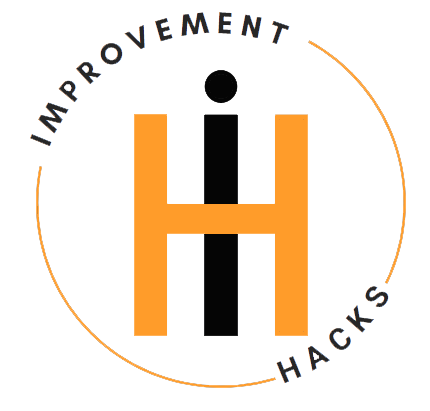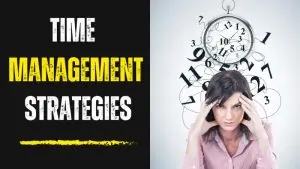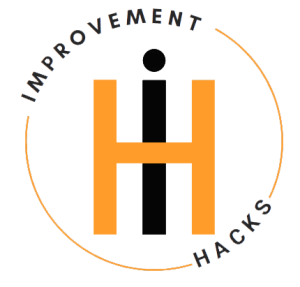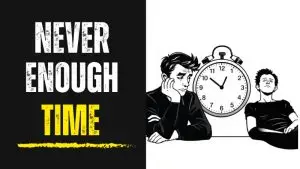Some people are always busy but don’t seem to accomplish much, while others handle a packed schedule and still manage to be productive.
So, what makes the difference?
How do highly efficient busy people get things done?
The answer lies in smart time management strategies and strategic habits.
If you struggle with productivity and focus, applying the following productivity tips can transform your daily routine.
These methods not only help you be more productive but also reduce stress and increase job satisfaction.
Plan Your Day with To-Do Lists and Schedules
Successful busy people don’t just make to-do lists, they schedule their tasks.
A structured daily routine helps visualize time and ensures tasks fit into the day effectively.
When you plan ahead, you eliminate guesswork, reduce stress, and stay on track.
Without a plan, you risk jumping from task to task without making real progress.
Key Time Management Strategies:
• Break big tasks into small steps to make them easier to complete. Large projects can feel overwhelming, but breaking them down makes them more manageable.
• Follow the 1-3-5 rule: 1 big task, 3 medium tasks, and 5 small tasks per day. This structure helps balance workload without feeling overburdened.
• Tackle a major task before lunch to build momentum. When you start your day by completing something important, you set a positive tone for the rest of the day.
• Outsource when possible—you don’t have to do everything yourself. Delegating tasks can free up your time for higher-value activities.
• Make time for activities you enjoy to prevent burnout. Rest and relaxation are just as important as productivity for long-term success.
Take Control of Your Time
Time management is crucial. Highly productive people create systems that work for them and stick to them consistently.
Effective time management strategies aren’t about doing everything, they’re about doing the right things at the right time.
Best Productivity Tips:
• Set deadlines to ensure tasks don’t drag on indefinitely. Without a deadline, tasks can stretch out unnecessarily.
• Schedule breaks to refresh your mind and maintain motivation. Short breaks improve focus and prevent exhaustion.
• Align tasks with energy levels—tackle tough tasks when you’re most alert. If you’re a morning person, schedule challenging work early in the day.
• Avoid multitasking—focus on doing one task well instead of many tasks poorly. Multitasking reduces efficiency and increases errors.
• Plan ahead—review tomorrow’s tasks before ending today. Weekly planning can also provide a broader perspective on what needs to be accomplished.
• Say NO—protect your time by setting boundaries. Not every request deserves your immediate attention.
• Make fast decisions on minor matters to avoid unnecessary delays. If something won’t matter in a year, don’t spend hours debating it.
• Avoid perfectionism—strive for progress, not perfection. Perfectionism often leads to procrastination.
• Create a “To-Don’t” list to eliminate distractions. Examples:
o No morning meetings.
o No coffee after 11 AM.
o No emails before 10 AM.
• Prepare backup tasks—have alternatives ready in case of cancellations. Being adaptable keeps your day productive even when plans change.
• Fill small time gaps wisely—listen to podcasts, read articles, or organize files while waiting. Maximizing small pockets of time makes a huge difference in overall productivity.
Manage Your Email Efficiently
Email can be a huge time-waster if not managed properly.
Instead of letting it dominate your day, structure your approach.
Checking emails too often interrupts focus and takes time away from meaningful work.
Smart Email Management Tips:
• Check email 3-5 times a day for 15-30 minutes each session. Constant email checking disrupts deep work.
• Use filters to sort messages and tackle high-priority ones first. Automation can help prioritize important emails.
• Clear out unnecessary emails on a monthly or quarterly basis. Cluttered inboxes make it harder to find important messages.
• Unsubscribe from emails that are no longer useful. Reducing email volume saves time and mental energy.
• Use templates for common replies to avoid rewriting the same emails repeatedly. Small time-saving strategies add up over time.
Minimize Distractions to Stay Productive
Staying focused is easier when your workspace and schedule are well-organized.
Eliminating distractions can significantly improve focus and efficiency.
Both external distractions and mental clutter can interfere with productivity, so it’s essential to eliminate them as much as possible.
How to Stay Focused:
• Declutter in small steps—spend 30 minutes a day organizing one area. Organizing gradually prevents it from feeling overwhelming.
• Turn off notifications for email and apps. Unnecessary notifications pull attention away from tasks.
• Use Do Not Disturb settings for work messaging apps. Setting boundaries helps maintain concentration.
• Wear earbuds (even without music) to minimize interruptions. This is an easy way to signal that you’re busy.
• Set clear “Do Not Disturb” signals at your desk to prevent disruptions. A simple sign can reduce unnecessary interruptions from co-workers.
• Work in time blocks to increase efficiency. Focused work sessions, followed by short breaks, maximize productivity.
Automate Repetitive Tasks for Better Time Management
Technology can save time by handling routine tasks automatically.
Use it to your advantage to free up your time for more meaningful work.
Time-Saving Automation Tips:
• Use canned responses for frequently asked emails and messages. This reduces the time spent on repetitive communication.
• Schedule social media posts in advance if marketing is part of your work. Batch-processing tasks improves efficiency.
• Set reminders for appointments, meetings, and deadlines. Automating reminders prevents forgetting important events.
• Use task management apps to keep track of projects. Digital tools can simplify organization.
• Automate bill payments and recurring expenses to reduce manual work. This prevents late fees and saves mental effort.
The Answer: Work Smarter, Not Harder
If you’re tired of feeling busy without making progress, these productivity tips can help you take control of your time.
Time management strategies are key to balancing work, reducing stress, and achieving more each day.
By structuring your day, setting priorities, reducing distractions, and using automation, you can make the most of your time.
You may need to adjust your approach to find what works best for you, but the key is consistency.
Being busy doesn’t always mean being productive, use these methods to make sure your effort translates into real results.
Start applying these strategies today, and watch how much more you accomplish without feeling overwhelmed!






